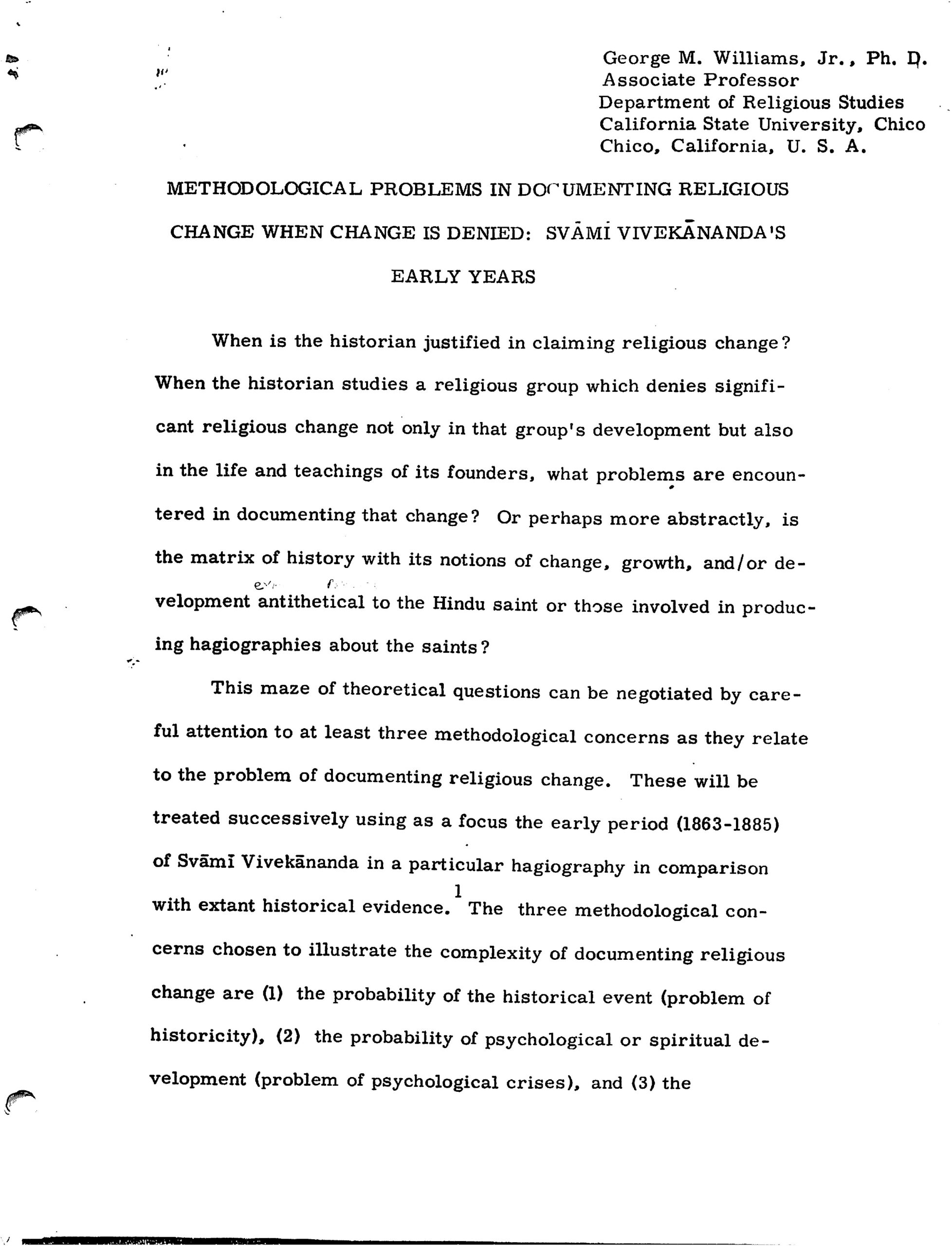
Methodological Problems When Documenting Religious Change When Change is Denied: Svami Vivekananda’s Early Years
Author: George M. Williams More DetailsThe article discusses the methodological problems in documenting religious change when change is denied, using the early years of Swami Vivekananda as a case study. The author explores the challenges faced by historians when studying religious groups that deny significant change in their development and the life and teachings of their founders. The article examines the historical events, psychological or spiritual development, and patterns of belief and practice in order to shed light on the complexities of documenting religious change. The author argues that hagiographies of Swami Vivekananda have portrayed his life in an archetype of the spiritual hero, but neglect the human richness of his quest for meaning and purpose. The article highlights the importance of understanding religious change in any life, regardless of whether they are a saint or a beggar, and suggests that gaining insight into religious change encounters the fullness of history through the individuals who lived in that time and space.
Back